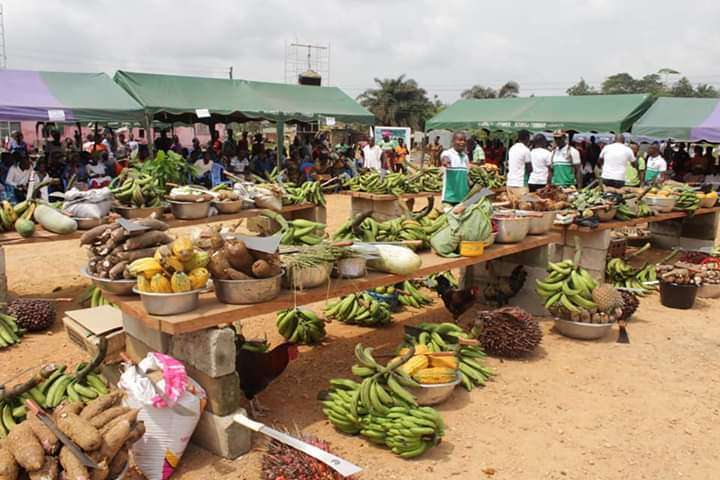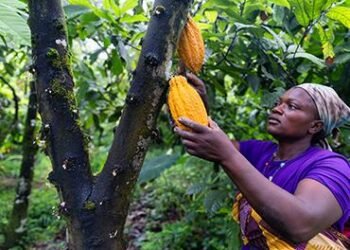Dr Owusu Afriyie Akoto, the Minister of Food and Agriculture, has refuted the popular assertion that fuel and transportation are the reason for the high prices of food in the country, noting that such an analogy is overly exaggerated.
According to the Minister of Food and Agriculture, Ghana is food sufficient despite the economic conditions the country finds itself in. He buttressed his statement by saying “using the Food and Agriculture Organisation’s measuring metric of availability, accessibility, utilisation and stability, there is no question that Ghana is more than food secure”.
The Minister of Food and Agriculture made this known answering a question asked him by the Member of Parliament for Gomoa West, De Graft Piatoo on measures put in place by the government to improve food security in the country. Dr Akoto stated the Planting for Food and Jobs policy has ensured that there is all-year-round food in the country.
“Mr Speaker, food accessibility in Ghana is more than satisfactory. In recent times, price hikes of food commodities in the urban centres, particularly Accra are creating an erroneous impression that food has become inaccessible.
“I have just returned from a tour of regions in the southern belt of the country and I can assure you that prices in the urban centres particularly Accra are a far cry from what pertains in particular production centres in the regions. Many attribute the high increases to the cost of fuel and transportation. Whereas this may be true to some extent, our analysis at the Ministry reveals that it is over-exaggerated. Accordingly, the government and the ministry on its own are arranging to transport food from the production centres directly to Accra to provide food at reasonable prices to the public and workers.”
Dr Owusu Afriyie Akoto
Addressing the Issues of Low Productivity
Dr Owusu Afriyie Akoto noted that the food crop module of the PFJ is targeted at addressing the issues of low productivity, and low growth that has characterised the food sector. An objective diagnosis of the sector, he stated, reviewed that yields of staples such as maize, and root tuber were between 40 percent to 45 percent of potential yields as of 2016 and equally distressing was the fact that only 11- 15 percent of food crop farmers used improved seeds and fertilisers.
“Fertiliser application was also as low as 8kg per hectare was compounded by poor extension service delivery which is also due to a low extension farmer ratio of 1:1908 in 2016 though the recommended ratio should be the FAO is 1:500.”
Dr Owusu Afriyie Akoto
On food utilisation, the minister disclosed government was constructing 80 warehouses to address the phenomenon of food going to waste in rural areas. “Most of these warehouses are currently being put to use at District Assemblies after completion to ensure that these warehouses are put to optimal use to serve their purpose,” he said.
According to Dr Akoto, his outfit is inviting private sector participation in the management of that facility and an advert to that effect has been put in the newspapers.
“Mr Speaker, interventions by the government in the last five years have clearly laid a solid foundation for sustainable food availability, accessibility, utilisation and stability. Even in times of major adversity, food production has been a constituent, ensuring the needed stability and resilience that every country needs to survive.
“This has been made possible through the sound and pragmatic policy of the government and all of us should support the ongoing effort to build a strong food sector that ensures self-reliance, value addition and the needed linkage to industries.”
Dr Owusu Afriyie Akoto
Dr Akoto stated that the Government’s investment toward National Food Security within the space of 5 years from 2017 to date, “I dare say is unparalleled in the history of this country,” he touted.
READ ALSO: Cal Bank Implementing a Two-Year FinTech Plan to Offer Customers New Product and Experience- MD





















